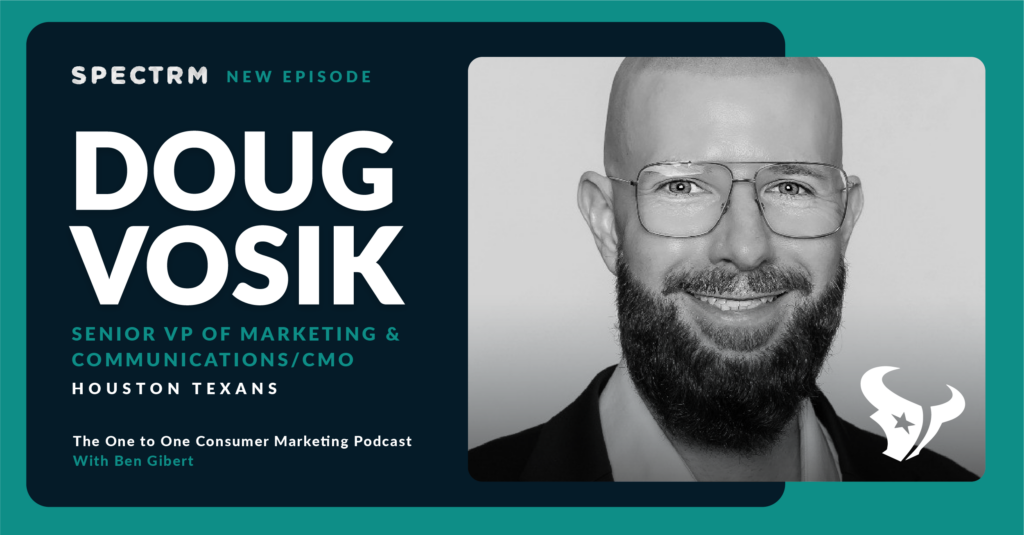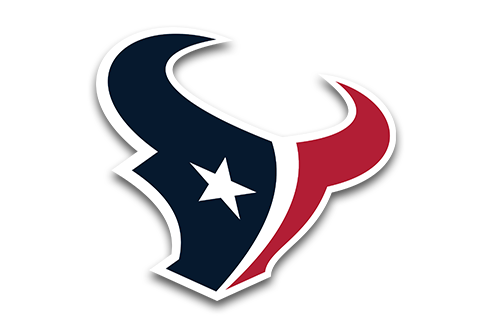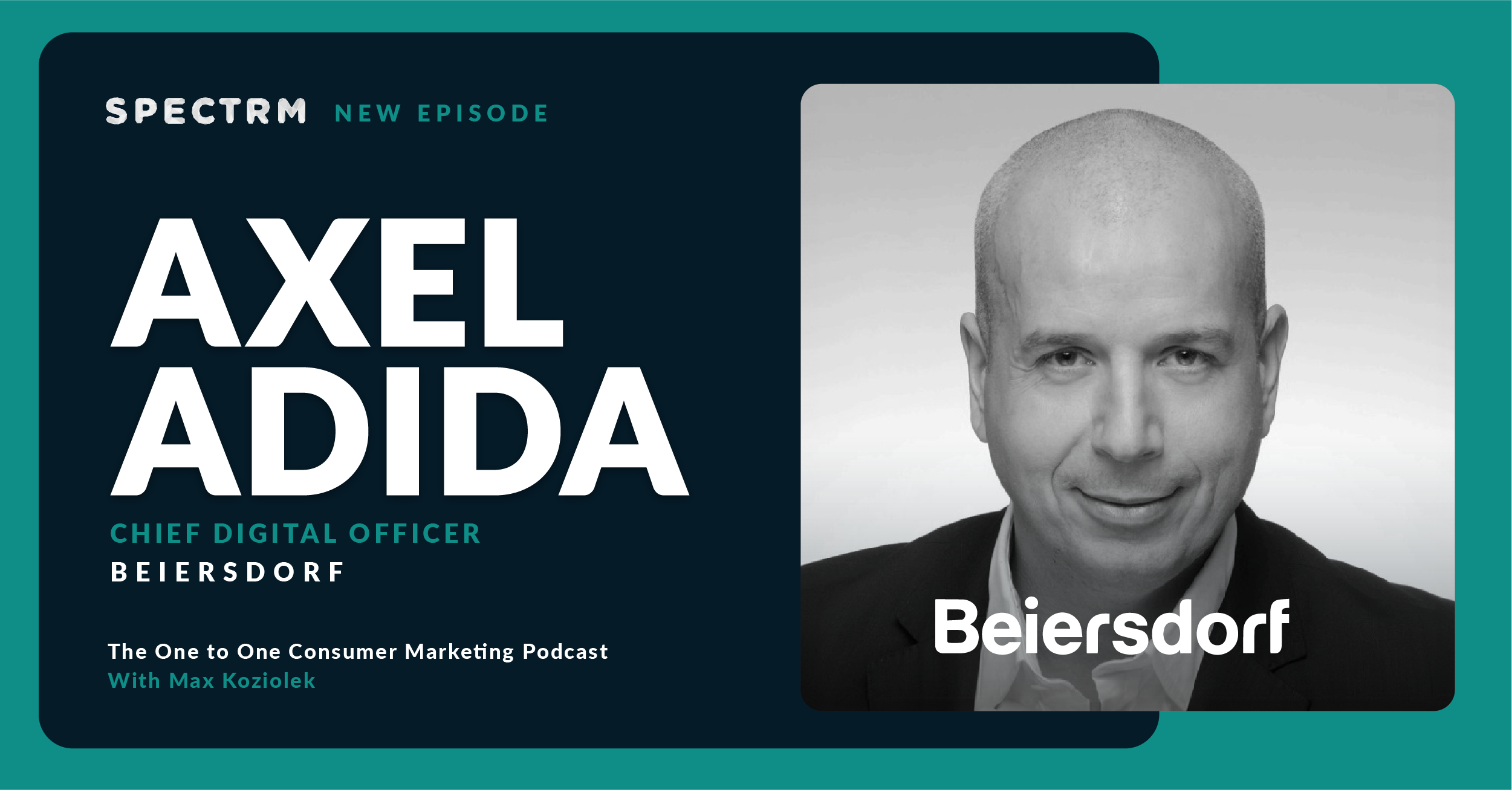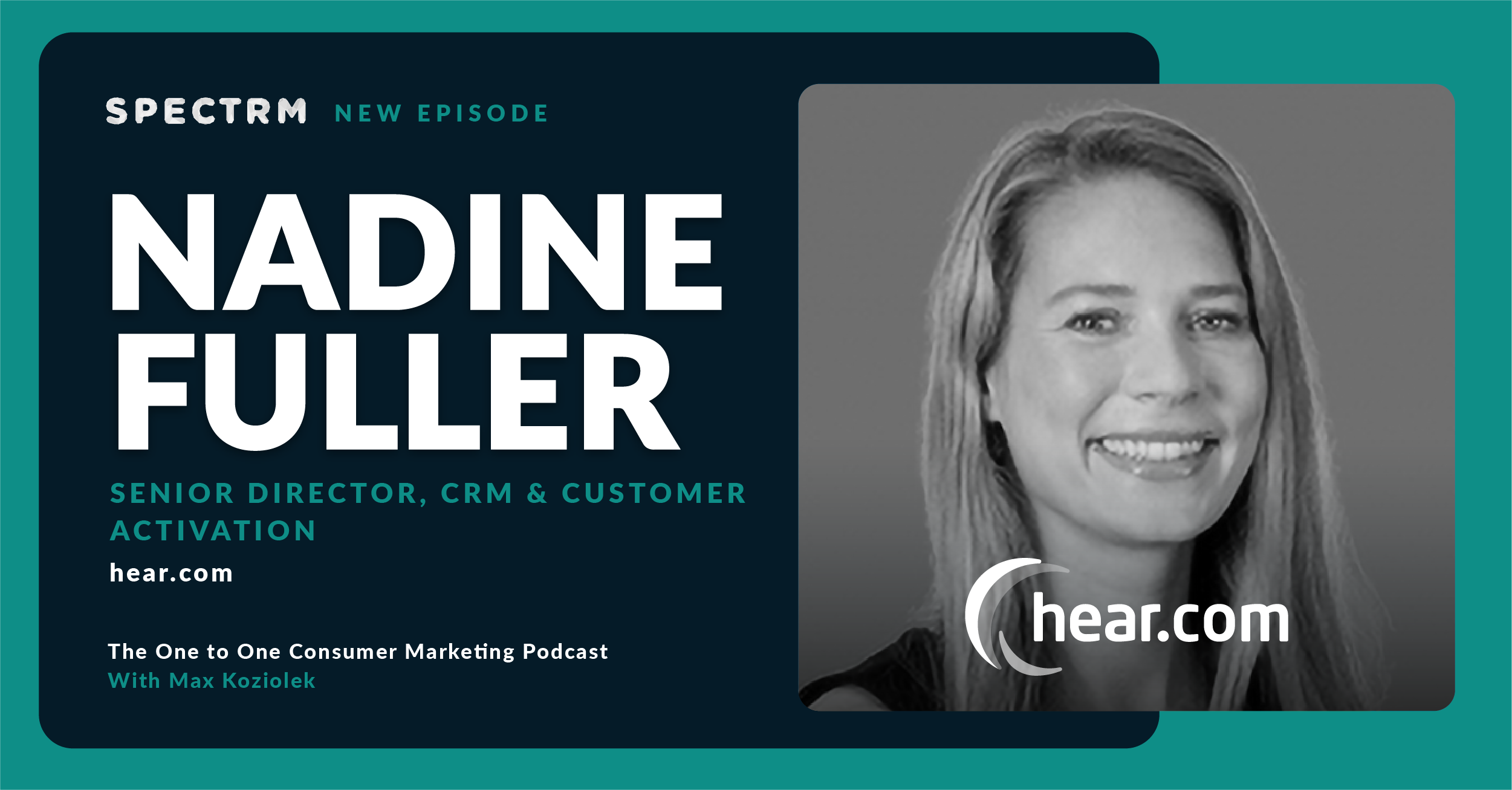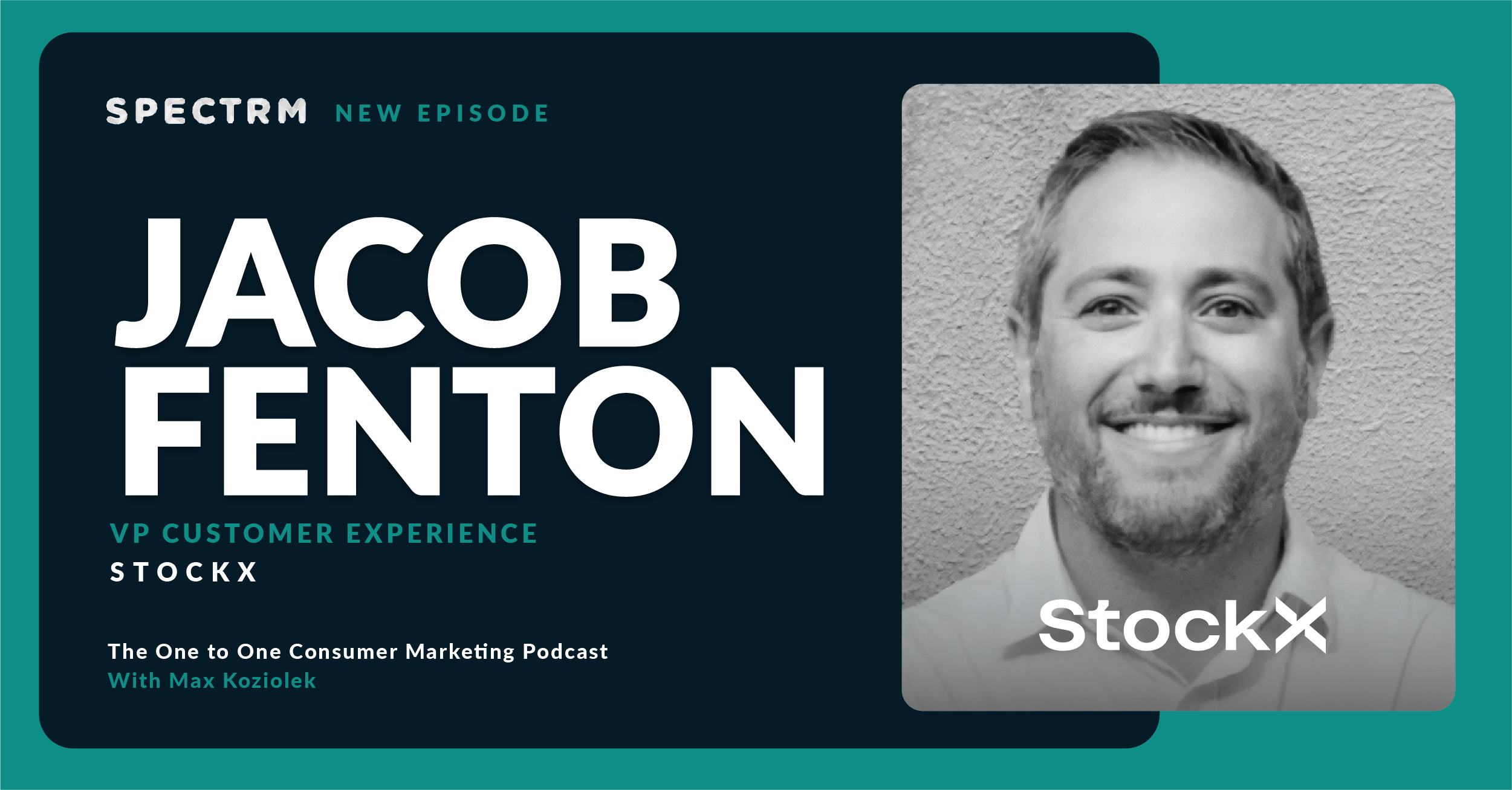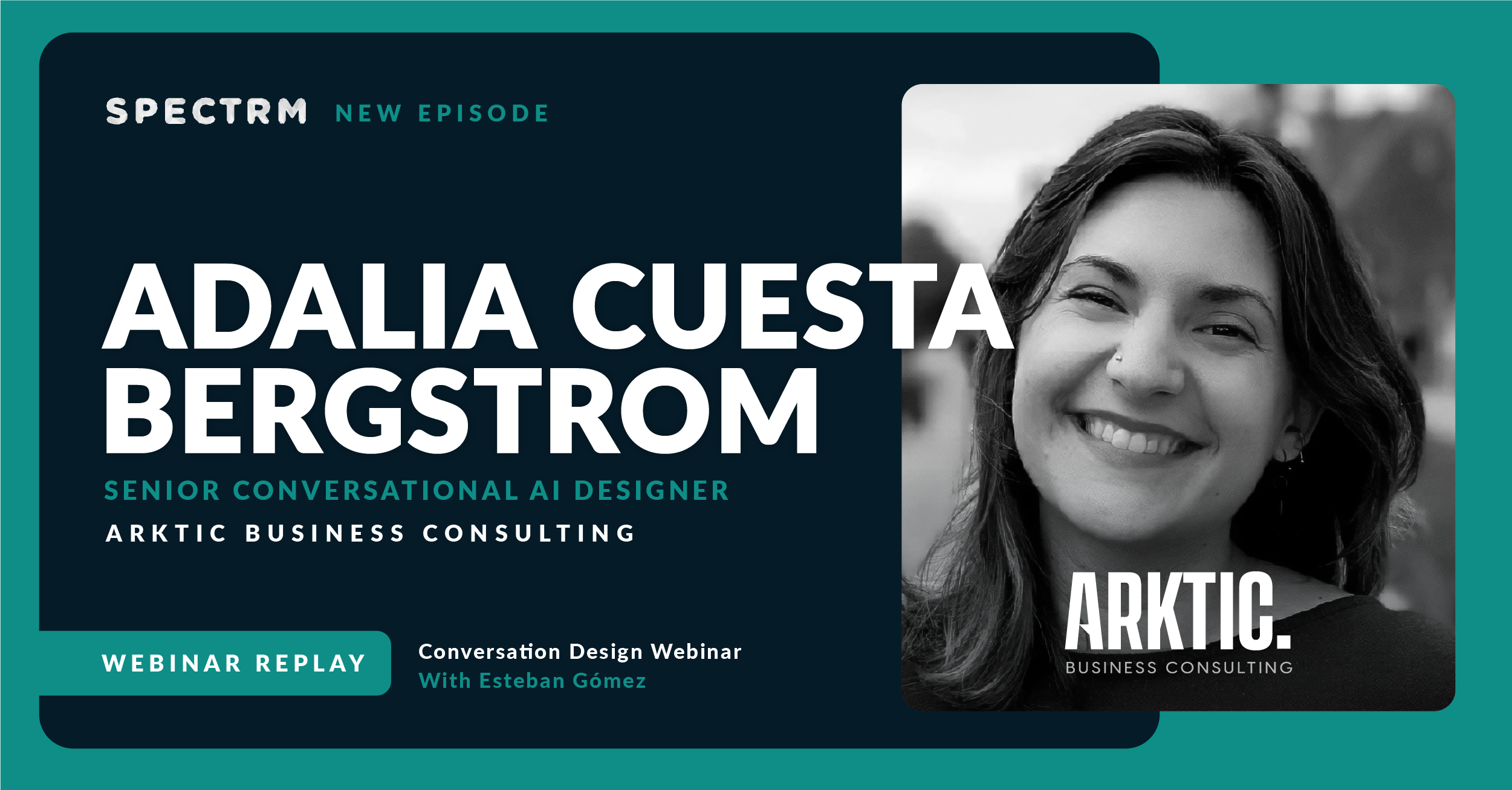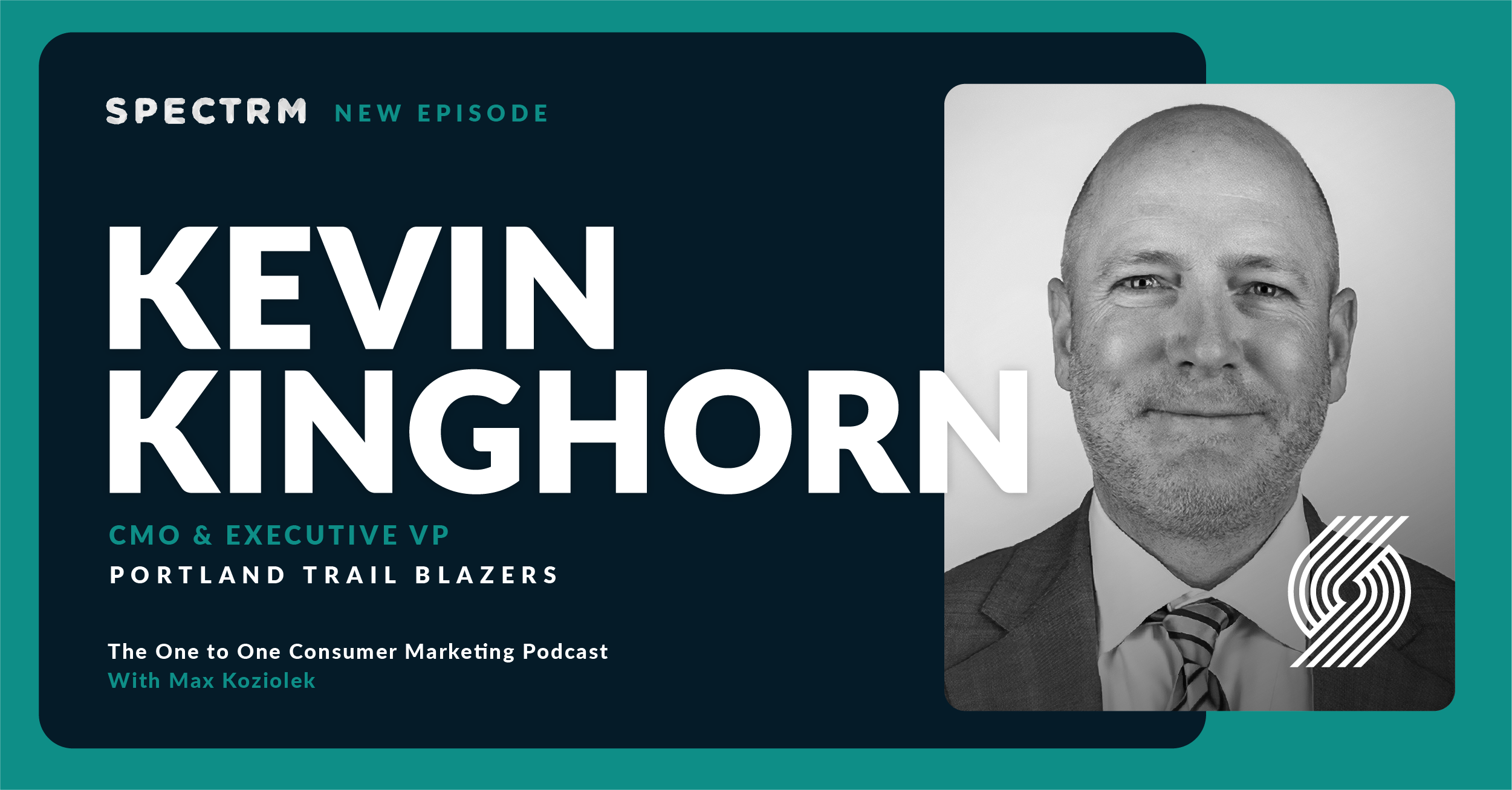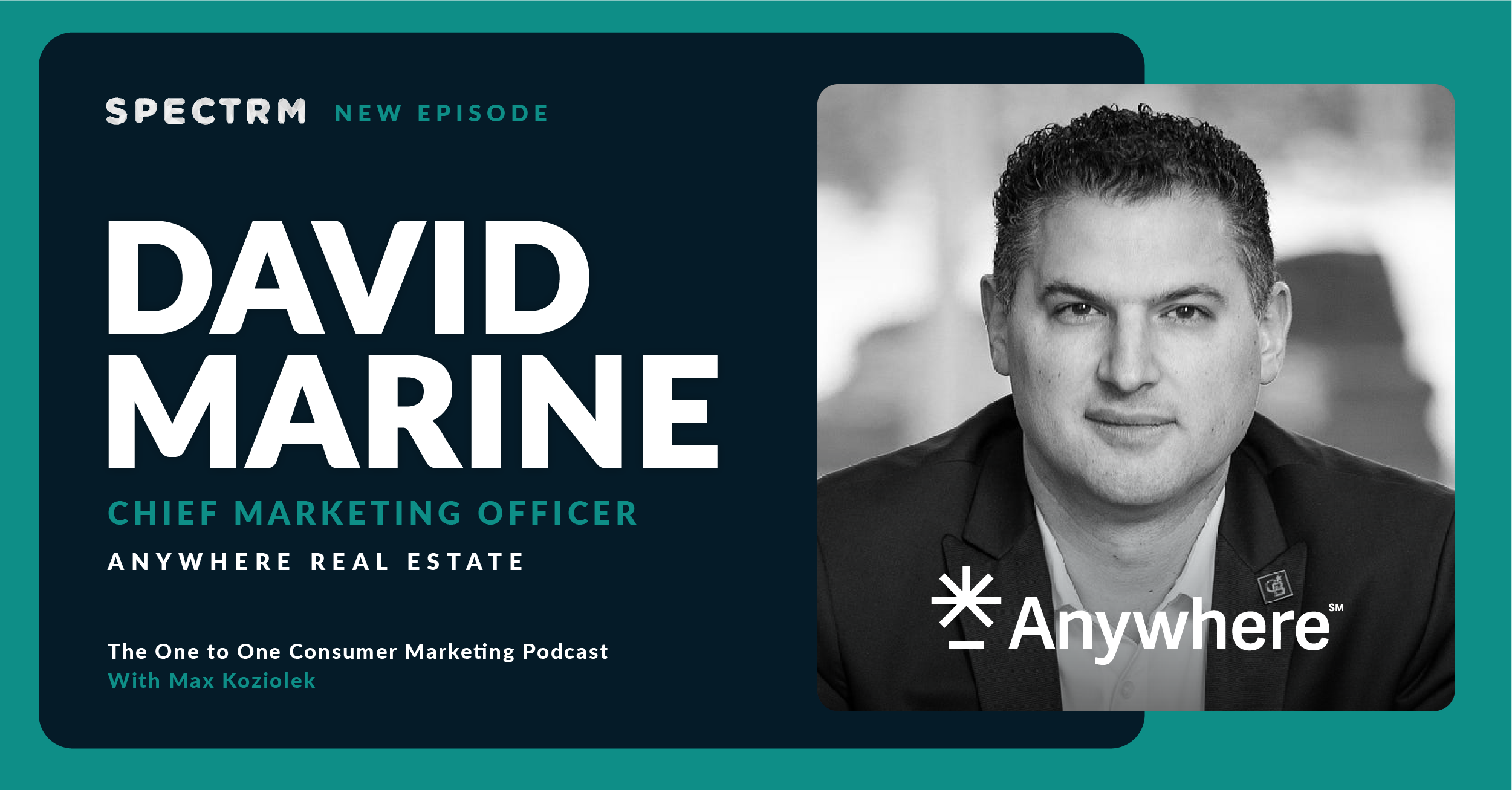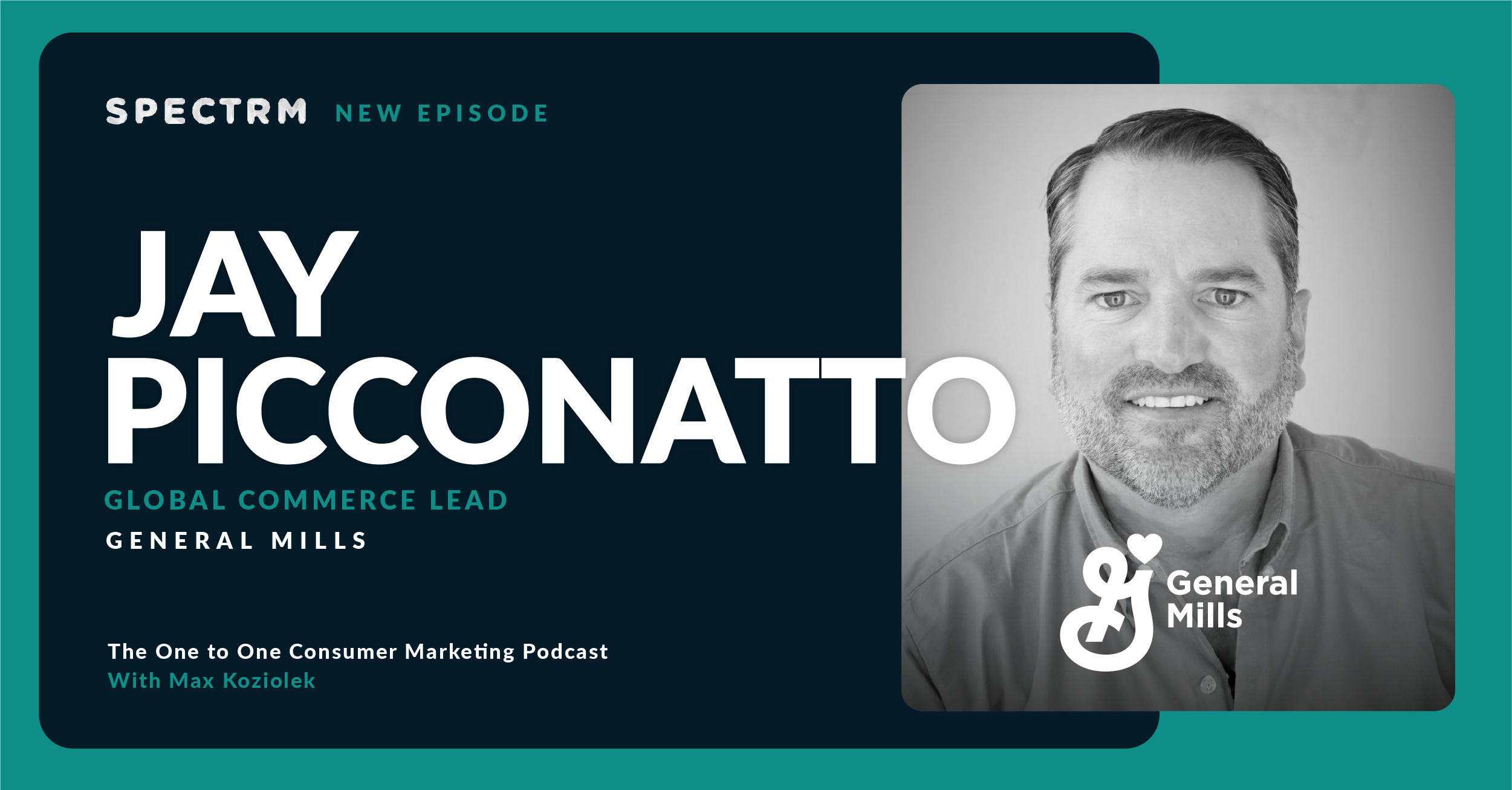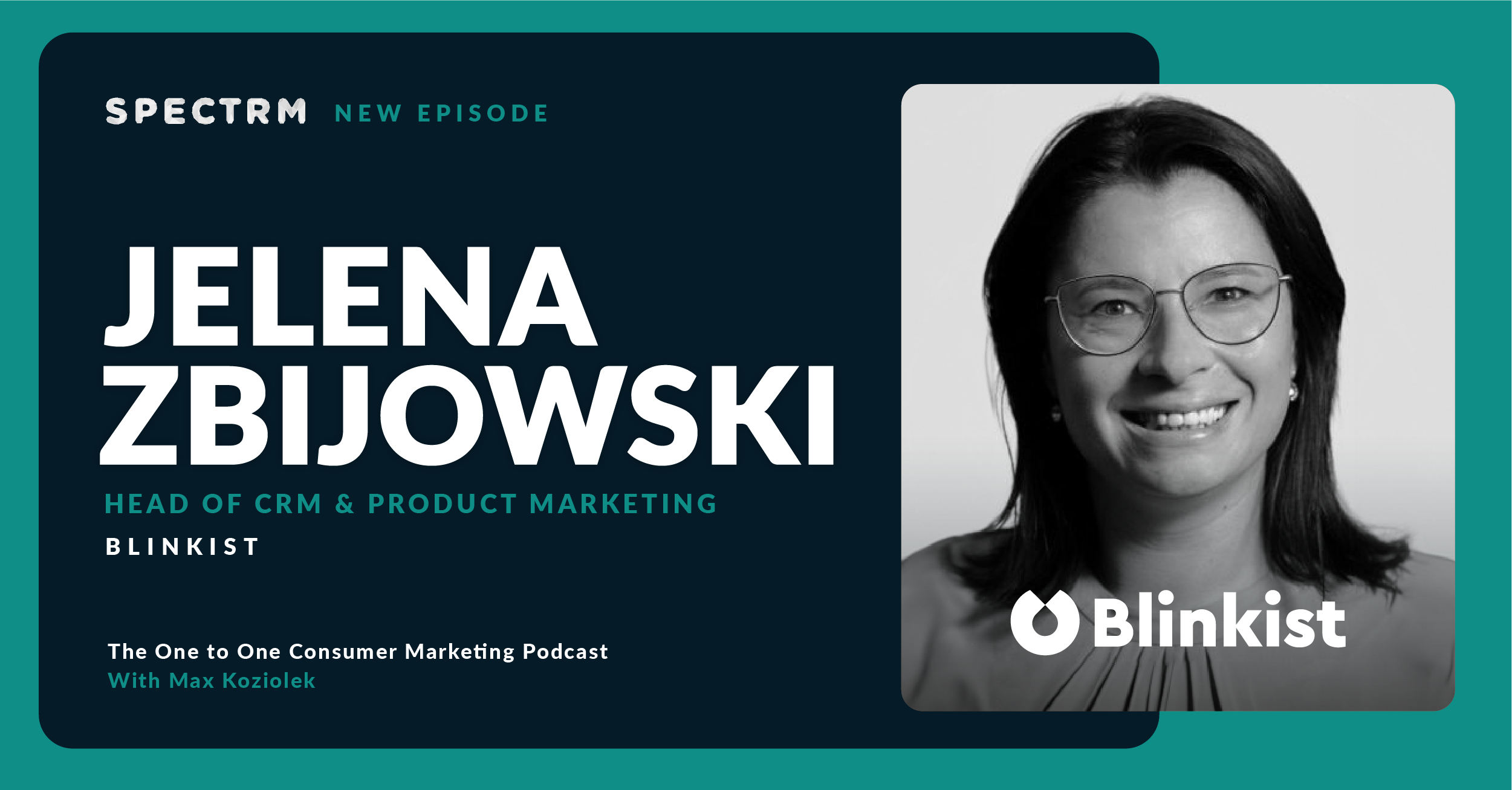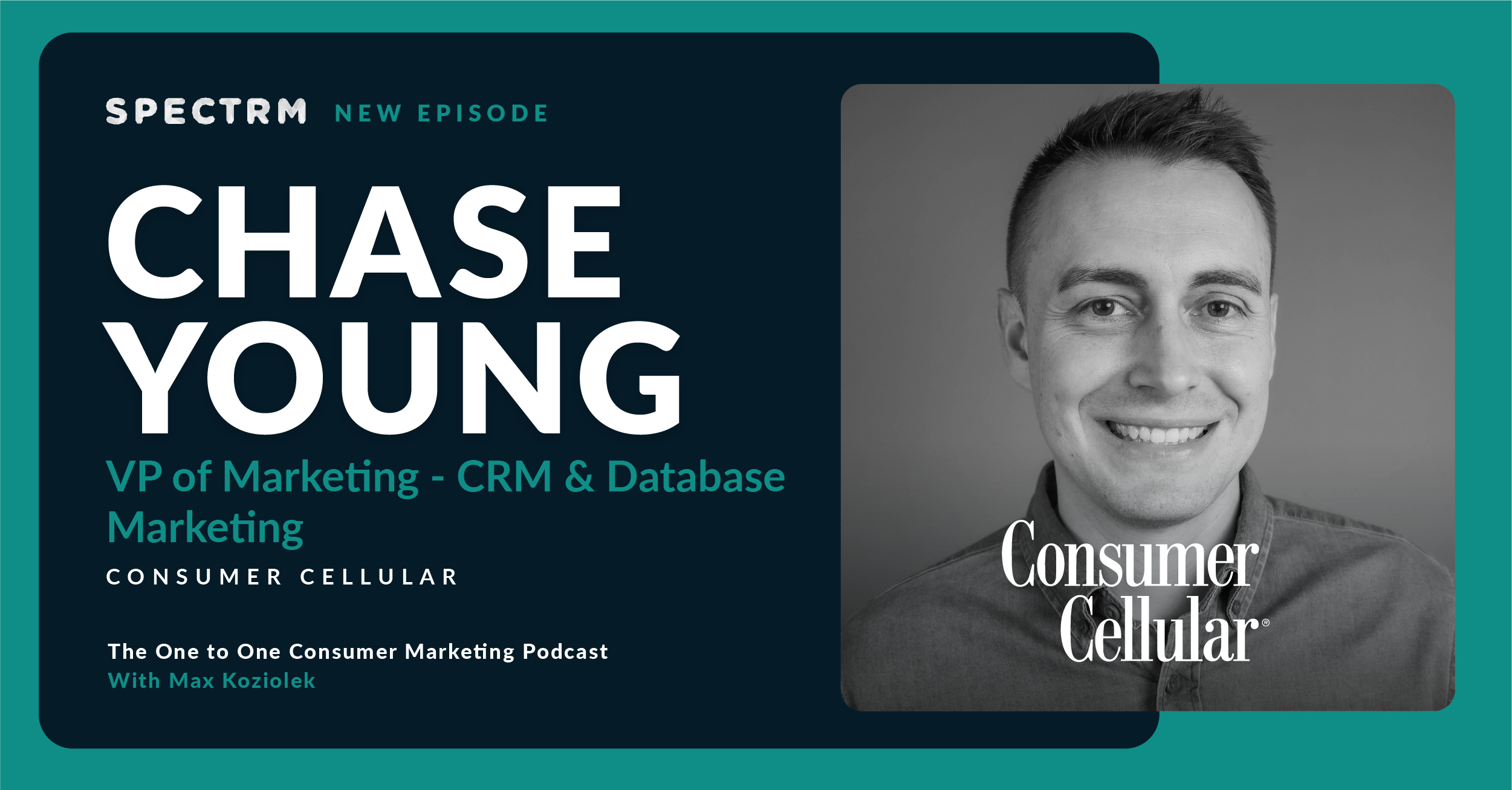Summary
Max speaks with Doug Vosik, Senior VP of Marketing & Communications/CMO at the Houston Texans football team. They discuss how to build fan engagement, including the necessity of changing the message depending on whether the team wins or loses, and the complexity involved in satisfying each fan’s unique needs. They also talk about how the backoffice integrated data feeds into real-time dashboards and what the future of channel optimization will look like.
Topics discussed
- Doug’s journey to sports marketing after working at Virgin, and why a sneaker obsession helped him get his foot in the door.
- The variety of verticals that a CMO of a sports team interacts with on a daily basis, from classic marketing functions, to community engagement, to entertainment at the stadium.
- How engaging fans changes depending on whether the team is winning or losing and how lifecycle marketing is driving fans to become season ticket holders.
- How taking a chance on a fun marketing video turned a team’s season around.
- The “complexity of satisfaction” and why you need data to learn what each fan wants and how to cater to it.
- How the Texans’ SVP of Business Analytics collected their data feeds into one real-time dashboard on Tableau.
- Where the future of marketing channels is going and the importance of moving away from channels that are dying to channels where fans actually spend their time.
How are you keeping them happy? And that is a very loaded and complex answer. Because especially in sports, it's an emotional product, right? The team winning or losing drives so much of their satisfaction that at the end of the day, you have no control over, right? Whereas you have some control over product development when making a football boot. You have some control over product development when making a cell phone. You control these things. And in our world, we don't control what happens on Sunday. So that's fascinating of just how much wins and losses can drive fandom.
Guest biography
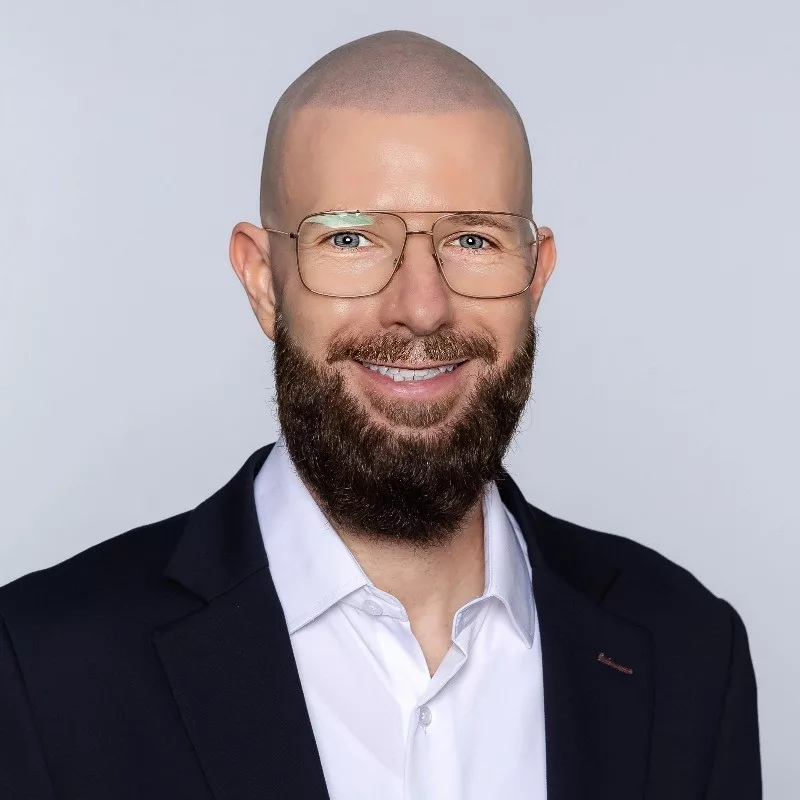
- Executive leader with extensive experience in building premium brands, driving revenue via sales and marketing strategies and leading high performance teams.
Company overview
Houston Texans – the Houston Texans has been selected as one of the Houston Chronicle Top Workplaces for five consecutive years. The Texans strive to hire employees and players that are a good fit in representing the organization, the Houston community and the National Football League by focusing their recruiting efforts on individuals with high character, a strong work ethic and a fierce competitive spirit.
Industry: spectator sports | www.houstontexans.com
Subscribe to the podcast newsletter
Transcript
00:00
Doug Vosik
How are you keeping them happy? And that is a very loaded and complex answer because especially in sports, it’s an emotional product. The team winning or losing drives so much of their satisfaction that at the end of the day, you have no control over whereas you have some control over product development when making a football boot. You have some control over product development when making a cell phone. Right. Control these things. In our world, we don’t control what happens on Sunday. So that’s fascinating of just how much wins and losses can drive. Fandom.
00:41
Max Koziolek
Hey, everyone, and thanks for listening to the one to one consumer marketing podcast. Today I’m speaking with Doug Vosik, senior MVP of Marketing and Communications, CNO at Houston, Texas. Thanks for chatting with me today.
00:54
Doug Vosik
Thanks for having me on. Guten Tag, wie geht’s?
00:56
Max Koziolek
Gutentag. Yeah, that’s how the German roots. I can hear that. That’s amazing. Thanks so much for jumping on that show to talk again a little bit about sports, customer engagement, fan engagement and retention. But before we get started, why don’t you tell us a little bit about your journey from companies like Virtual Mobile to the Philadelphia Union and how you landed with the Houston Texans.
01:21
Doug Vosik
Absolutely. I will tell you, my journey is unique, as so many of us in sports, if you want to call Virgin Mobile consumer Products, CPG, consumer Packaged Goods, right? It’s a product sitting on a shelf. So for me to make a transition of a ten year career of CPG to sports was quite an interesting shift. And there’s a really good story, actually, of how I got my foot in the door at Sports, coming from a Virgin to an Under Armour, then to a Philadelphia Union and so forth. So you tell me how deep you want to go because there’s some fun stories in there and good lessons learned about how to find your way in.
01:56
Max Koziolek
You go ahead. The lessons are always good for people which might also want to break into sports, but also just want to break into the spheres you’re currently operating in.
02:05
Doug Vosik
Okay, perfect. I’ll give you a little bit more detail than usual then. So, yeah, you could imagine sports is really exciting and attractive and everybody wants to work in them. But I didn’t know I wanted to work in sports, to be honest with you. When I eventually found my way to consumer products, call it Boost Mobile and then Virgin Mobile my goal, there were really two goals. It was work for Cool Brands, work for brands that were lifestyle marketing 18 to 34. Don’t go work at an insurance company, don’t go work in medical, work at Cool Brands, number one. And number two, I’ll admit I didn’t really have a path or a vision for my career. It was basically just work hard, do great work, and get as far promoted as you could. It didn’t matter what the job was, to be honest. I spent my first five years in sales, actually in CPG.
02:53
Doug Vosik
I was not a marketer when I first got my real job, so for me it was stay true to myself, work at a cool place, cool brands, and see where the journey takes you. How I got into sports is pretty fascinating. Out of tragedy comes triumph sometimes. At Virgin, I had finally worked my way up into a pretty high ranking brand marketing job, where I was overseeing brand strategy, marketing operations, social media, PR, community, all these multifaceted verticals under marketing. And I’d been there probably about a year in that job after several years at Virgin Mobile, and my company was bought by SoftBank. So a very huge conglomerate, right? And meaning they bought my company, our parent company was Sprint at the time, which doesn’t even exist now in the US. And SoftBank simply had a different portfolio strategy. And when it came to Virgin Mobile, after some time, they said, yeah, it’s a brand that we’re not going to invest in the future.
03:51
Doug Vosik
And that left me one year in, I finally got that big job. I was excited to finally be that leader. And I was like, oh, what does that mean for me? And what it ended up meaning for me is I had a really hard lesson as a young leader. I had to lay off my entire organization, right? Including people that were 1020 years older than me, that were supporting families. I had to learn that of what it means to lay off an organization. And then for me personally, they gave me a choice. They said, we could find a home for you at Sprint somewhere, or you could take a severance package. And for me, if my core was work at cool places, no offense to Sprint was not cool. So I elected to take a package. And when I took my package, that is where I slowly found sports.
04:37
Doug Vosik
Again, no intent in working in sports. I simply was looking at myself and I said, what am I doing in my free time? And in my free time, I was going to footy headlines and soccer Bible every morning to kind of get my head kind of excited about boots and jerseys and leaks. I became a season ticket holder at the Major League Soccer team in Philadelphia. It was a new team in 2010, and I started playing adult soccer again after not playing for 20 years. And I said to myself, I guess I should try to work in sports, right? So there was no master plan, there was no strategy. And then I just went to old school networking, right? I’d apply to jobs, I wouldn’t hear back from anybody. I’d go out to my key group and say, does anybody know somebody at Adidas, Under Armour, Nike?
05:22
Doug Vosik
No luck. And eventually I found my way in and over a period of six months, got to know the head of soccer for Adidas in Portland, a guy named Ernesto Bruce, and we just got to know each other. No job interview, no anything like that. But the reason why ultimately I ended up getting a job at Adidas and Under Armour was because of my obsession with football boots.
05:44
Max Koziolek
What was the obsession?
05:46
Doug Vosik
I was a bit of a sneaker collector, a sneaker freaker, whatever you want to call it. Right. Jordans and Vans and all these things. And when I started playing again in my early thirty s, I was fascinated by the branding, the tech, the players who was wearing what, and I would go and just hunt boot deals and I would just buy boots. So on a Sunday morning, for an over 30 men’s league, I’d open up my trunk and I’d have 50 pairs of boots in my trunk, in my car. Wow. And people would say to me like, are you a former player? Like, no, I just love boots. I just love them. And I’d wear a different pair every game. And I was fascinated by the marketing and the product marketing and whether the tech’s real or not, a lot of it’s marketing. And what separated me in my interview process for Adidas and Under Armour was the fact that I could break down every brand, every boot, every piece of tech, top ten players, wearing every style.
06:44
Doug Vosik
That is where someone at Adidas would say, I’m embarrassed that I think you know more than my team does about everything. And I’ll tell you, to this day, if it wasn’t for that obsession that was personal, I probably would never have ended up in sports. I would have never have gotten a job offer from Adidas, a job offer from Under Armour, and then that obviously transformed into the team side for the current part of my career. But I’ll say to this day, had I not obsessed about boots, I would have just been like everybody else, a good marketer with good ideas. Just like everybody else out there. Right. I think it was the obsession on boots that separated me.
07:16
Max Koziolek
That’s fascinating, because in the end I see you also a pattern. That is, you have a first principle. Right? So you want to work at cool places. That’s very cool, because where did it come from? I want to work at a cool place. That sounds a little like a small child.
07:33
Doug Vosik
Where do you want to work?
07:34
Max Koziolek
At a cool place. But I think that’s how you made your decisions in the end. I mean, Adidas and Omar, there’s all very cool places to work at and you combine that with your yeah.
07:45
Doug Vosik
The cool thing I’ll say probably came from my family growing up. So when I was in college, my older sister worked in call it tour management and Event Promotions. So I could witness her going from city to help manage a heavy metal show, a hip hop show. And I was like, you get paid to do this. This is amazing. What a cool job. So I think my direct family comes from legal backgrounds, insurance backgrounds, but as soon as my sister started entering, oh, wow, you could have a really cool life and get paid to do it. That, for me, was a big light bulb moment where as long as I can find cool places, I’m off to a good start.
08:24
Max Koziolek
Makes total sense.
08:25
Doug Vosik
Yeah.
08:26
Max Koziolek
Amazing. You also work now. A very cool job, I have to say. But maybe you can tell. How does a day look like for you in the like, of dark? What was happening on a normal day and what’s happening, for example, on a game day?
08:40
Doug Vosik
There are normal days. Correct. They’re all different. I will say I’m very blessed in my role in that. My scope is wide. So if I look at the verticals that are part of my organization, you’ve got a classic marketing function, a classic marketing operations and planning, integrated marketing. You have your classic digital social app, web management, vertical. You’ve got a whole side of creators that are designers, photographers, videographers. You’ve got broadcast, that’s TV, that’s radio, that’s preseason game production. You’ve got game entertainment and presentation. So everything that happens on game day in the stadium, that’s not the players, right. The entertainment, the on field, the video boards, the music. Then you have community and our foundation. So all the good things we’re doing in the community, how are we raising funds to give back into the local market as part of the organization as well?
09:35
Doug Vosik
And then, of course, the communications and PR side of things that in sports, it’s very important to keep at our heart that a lot of the work is inbound because there’s so much interest in what we do. But also there’s a side of our job that’s very outwardly facing. How do we get more interest to cover our team? So when you look at all those verticals, my days can be all over the place right at one moment, it can be, what’s our retail collection for next week? Another moment could be like. Use this weekend as example. One of our greatest players and probably one of the greatest players in the NFL, JJ watt, is being inducted into the Texans Ring of Honor, and there’s only two other members in that Ring of Honor. So this week, everyone is focused on how are we bringing JJ Watt to life, whether it be through PR, television community, through digital content, through game day experiences.
10:23
Doug Vosik
So every day is different. Every week is different, and then game day is very different. As a result of that, you’re pointing.
10:31
Max Koziolek
To a very interesting fact that you have a lot of inbound demand. So people want to get information. They want to be closer to the team and so on. On the other hand, you have the job to expand the reach, to engage them more. That’s a little bit of an exciting point because most marketers out there have the especially retention, CRM marketers. If they do everything correctly and they engage the user perfectly along the user journey, they have a high NPS score. They have something like a net promoter of the brand, which is almost something like a fan. But you have a lot of fans, right? How do you engage fans on the one end? How do you expand, reach, get more fans, get them more engaged? How do you balance these very different levels?
11:17
Doug Vosik
That’s probably a three hour answer for you. That’s probably a university lecture. But at the end of the day, you really can break down, call it the business of sports versus necessarily fan stage or fan journey, right? Every team in any league, you have your core season ticket members, right? And your core season ticket members drive, depending on sport and team, 70, 80% of your ticketing revenue. Right?
11:43
Max Koziolek
Okay.
11:43
Doug Vosik
So every year, if you really want to make the comparison to other industries, that is your classic life cycle marketing, your classic retention, your classic NPS, keeping them happy, keeping them renewed, that’s your classic model. So whether you’re selling a phone service and you want them to renew their contract, whether you’re selling a soccer boot, a football boot, and you want them to buy the next boot, right? It’s the same model as your core user that’s driving the majority of your revenue. How are you keeping them happy? And that is a very loaded and complex answer because especially in sports, it’s an emotional product. The team winning or losing drives so much of their satisfaction that at the end of the day, you have no control over whereas you have some control over product development when making a football boot. You have some control over product development when making a cell phone.
12:40
Doug Vosik
Right. You control these things. In our world, we don’t control what happens on Sunday. So that’s fascinating of just how much wins and losses can drive fandom. Let’s be honest in the world of sports, and you see this, when teams are losing for a long time, years, decade, their stadiums on television, they look more empty, right? Yeah.
13:03
Max Koziolek
Yes, they do.
13:05
Doug Vosik
It’s hard to find a team that has a long period of losing, that the stands are full, the fans are crazy. Right. Because as marketers, our job is always to take the status and make it better. But we can’t take the status here and make it this much better. We are here to capitalize on the good moments and to make the bad moments not as bad. Right? So you can see marketers do this in sports of when the team’s bad, you’re going to focus more on experience, connection, human interest, non sports things. When the team is good, you’re doubling down on why this team’s the best team ever, and to get excited and to have hope and championships will come and we all do it because again, we are magnifying the status or at times manipulating the story to not focus so much on the negatives.
13:59
Doug Vosik
Right. So for me, it’s fascinating when you look at that emotional buyer that is the core of your revenue on the ticketing side, on how you keep them happy. Right. You’ll find through survey data, experience and game day environment all that matters, but it matters more when the team’s not as good. The party experience, the tailgate experience, the social aspect of it matters more when the team’s not good. So I think most fascinating for me was my experience at the Philadelphia Union in Major League Soccer, because I got to see both sides of it. When I got there, were a terrible team, couldn’t win games. I think went eight months without a win. Right. Just terrible. And I remember how hard it was to sell tickets, or if you have sold a lot of tickets to get them just to show up. Right. Some people buy a ticket and just not show up.
14:47
Doug Vosik
And then my latter years there, the team was successful. So if I think about those five years, the first three was about reinvention. How are we reinventing marketing, how are we reinventing game day, how are we reinventing retail, how are we reinventing our PR communication strategy? How are we reinventing content? All those things. How are we finding hidden gems of stories and magnifying those? When the team was good, we had actually all the marketing strategy and process in place from the losing years. So by the time that the team was good, were a well oiled machine so we could capitalize on everything when the team was good. So I’m giving you a very long winded answer, but sports to me versus maybe my ten years on the product side and CPG, it’s fascinating of the emotional side of it and how you have to change your marketing strategy based upon it.
15:36
Max Koziolek
You’re right. I think fascinating is a good word to describe it because everything, your whole marketing changes the moment the game is over.
15:44
Doug Vosik
Right.
15:45
Max Koziolek
So you always need to be prepared for both, which I think is an incredible amount of work in order to be prepared for that. And if you have an eight month losing streak, then have you prepared at this point still the communication for the win, or you were more like in the corner saying just, that’s what we have to run with.
16:06
Doug Vosik
Well, I mean, after eight months, when you do get the win, you don’t celebrate the win too much because your fans will be like, oh, you finally won. Look at you being off. Right?
16:14
Max Koziolek
All right, that’s true.
16:15
Doug Vosik
Yeah. I would say though, to answer your question non sarcastically, win or lose, content creators are going to create win or lose, creatives are making photography design video, right? Win or lose, there’s TV shows. Win or lose, there’s outbound communication, right? Win or lose, the Philadelphia Union experience is funny because were still doing our job in the sense were building a brand regardless of wins or losses. We were building a cool brand that the Philadelphia Union are cool regardless of wins or losses. Right? And after this eight month skid, we released a video that was our players mocking. There’s a TV show in the 90s called The Fresh Prince of Bel Air. Look it up. You’ll be like, wow, the 90s were crazy, right? With Will Smith. But that’s a story about a Philadelphia kid that goes to La. So we basically did a mock spoof of the intro video of that TV show with our players, right?
17:14
Doug Vosik
Supposed to be funny, supposed to get laughs. And we launched that video during an eight month losing skid, right? I can’t tell you the amount of messages I got that day from the external world. What are you doing? How are you making jokes during this time? You’re the dumbest marketer in the world, right? All these things some of my peers at the league, what are you doing? My goodness. And I was like, well, isn’t our job to entertain? If the product on the field is not entertaining right now, aren’t we still here to help entertain to some degree? So the fun fact in this, and sometimes people go, what you doesn’t help wins or losses, right? This is my only example in eight sports years where I can say it does. So the tale is the players saw that video before that game and it made them all laugh.
18:02
Doug Vosik
It made them all just crack up and make fun of each other. And it got their minds out of the trap of lose, win, lose, win, lose, win. They won that game. They won that game. They played freely. They were relaxed. They played the kind of football that they’re expected to play. And to this day, we joke as marketers, we’re like, we got that win. We got them out of their heads, right? So, yeah, I digress. But if I’ll say anything again, fascinating world. Of all the things we get to do as professional marketers, it’s sketching the.
18:33
Max Koziolek
Hearts of minds, which is the best thing you can achieve as a marketer. But to come back to the 80% of the ticket holders you mentioned, you really need how do you think about this? How do you structure them? How do you know we need to get to this 80%? Are you happy at the end of the season? If you get to the new season, 81%, 82%? What’s the success of this kind of group to keeping them happy, reengage them? And how do you measure that?
18:57
Doug Vosik
Yeah, I’d say the best way to answer you is just the complexity of marketing in today’s world, right? There is no majority solution to make those people happy. Everybody there’s core learnings, right? But everybody wants something different to feel satisfied. Some want the best tailgate experience pregame in the parking lots, right? The party. Some want that is the core of their day. Some want perks and discounts. Some want the comfiest, best view in the building, right? From a seat perspective. Some want the sense of community around their seats. The same people have been sitting with me ten years. This is my extended family. Some people want cool merch. They like to feel that team swag, right? Some people like the traditions and rituals and the songs and the chants. So some people are more concerned about traffic and parking, right? So the complexity of satisfaction on any fan these days, let alone your core, is more complex than ever.
19:59
Doug Vosik
And the best you can do as a marketer is be extremely data driven. So from surveys to point of sale feedback, to focus groups, to real time data on game day. So give you an example of real time data. We see, we see parking lot information by the parking lot. We see entry information by gate. So we know, oh, if that parking lot is 90% full, but that gate has only got 10% of people through it, yet we know those people are still partying and they’re not coming in yet. Right? We know real time what are they buying at every single stand. We know on any given day, OOH, that new burger is making fans happy because they’re buying a lot of it. But we also know that new burger is taking 15 minutes to get made. That’s got to be faster to make them happier, right?
20:48
Doug Vosik
We know real time, every point of sale on merch, what T shirts are selling best, what hoodies are selling best, the limited edition stuff. How that’s doing? So, game day, we’re getting all of that data in. We have some brilliant data analytics people here and all the infrastructure they’ve built to get us that information real time. So we get all of that on game day, constantly through an Ops feed. And then now add to that all the monitoring we’re doing on social media, with social media listening tools, all the monitoring we’re doing with PR communications tools, so all that stuff is letting you ultimately know satisfaction to a degree without it, depending on a survey where you get MPs score, to be honest.
21:27
Max Koziolek
Very cool. The Ops feed you’re mentioning there, how should I imagine those kind of Ops feed? Is that something like really a data feed you’re looking at? Is it something like a Facebook feed.
21:39
Doug Vosik
That’S coming along where you see different updates.
21:43
Max Koziolek
I would say, from speaking to different marketers, that’s very complex operations, especially when it is real time. So how do you manage that?
21:53
Doug Vosik
Yeah. And that’s where I give the utmost credit to our SVP of business analytics. His name is Ben Wong. He entered the organization at the same time as me. So what he has done an amazing job at is all of these data sources, there’s so many, right? Between retail, point of sale concessions, point of sale gate information, parking information, Ticketmasters, our Ticket partner, all these things are separate feeds. So you can imagine if we didn’t have a smart data system, I might have 20 windows open to get all this data. He has been able to build back end pipelines, so everything runs through Tableau. I can just see Tableau reports real time that update every five minutes. And even to make it even easier on us, since we’re on our phones mostly on game day, even in Microsoft teams, just in teams, he’s got automatic data feeds that show you some of this key data real time.
22:39
Doug Vosik
So brilliant minds that are beyond just the marketing guy to make all this happen so the organization knows how we’re doing on any given minute throughout a game. That’s so cool.
22:47
Max Koziolek
And I think that’s really top notch technology you’re using here. Also from the tax deck, if you think about technology and how this is developing and how do you imagine the next three, five years? What excites you as a marketer going forward?
23:03
Doug Vosik
I would say we’re all trying to figure it out, right, Max? We’re all trying to figure it out. And if you think about what’s happened over the past ten years, it’s been fascinating. If I could think about myself as a marketer ten years ago, I spent so much time in meetings that were about all your app, all your website consumers aren’t there anymore, right? Web usage is down year over year. All teams, all sports, right? Just that’s not where the consumer goes, right? Same thing on apps. There was a phase where every team was like, I got to have an app. I have to have the best app. Oh my gosh, we got to bring people onto the app. The app is going to be sticky. The reality is now this is my third team, so that’s my perspective on it. My third team. So three different team apps.
23:47
Doug Vosik
Most of the usage happens on game day. Most of the usage is about, how do I make my stadium experience better? Whether it be Ticketing, whether it be in seat ordering, whether it be different raffles or purchases. It’s not about content. It’s not about what’s the latest injury update? They’re getting that from Twitter, right? They don’t need the team app. So for me, I am curious over the next five to ten years on the classic models of app and website, if we all finally look at ourselves and go, the consumer is not there, it’s time to move on, because we still all put resources into them, right? Because you have to have a team app. You have to have a website with the information, right? That’s the expected model. So how do you just accept where fans are and either dial back resource right or come up with a new solution.
24:37
Doug Vosik
So for me, that’s one is, will there come a point in time we’re all willing to look at ourselves and say these are not important anymore, and scale back two is you can see, of course, where all the fans are and that’s social. But as you know, we only control our outcomes so much on those platforms, right? They’re not owned and operated. We can make the best content in the world, we can engage our fans, we can look at all the analytics, but we all know that without rather extensive paid efforts behind them, the organic reach of our posts anymore are extremely limited, right? I forget what the latest stat is, but let’s just say it’s under 2%, right? Under 2%, right. So 2% of your fans are seeing your content organically. Now think about all the work that is pushed behind the scenes to make all of that content.
25:27
Doug Vosik
So there’s also eventually, to me, there’s going to be a meeting of this somewhere, of all this resource and work to storytell to engage fans, but only 2% are getting it. And to get more reach, I have to spend a whole lot of money, right, just to engage my fans. But that’s where we are today as a fan consumption trend. So to me, that’s fascinating of that cycle keeps going and gets worse, right, because of, honestly, the social companies that make money, right? So that’s interesting of how that will continue to unfold. And then lastly, you just look at what happened with Threads, right? It is so hard to break a new platform, right? Even from the companies who have had extreme success in platforms. So to me is like, in the next five years, is there eventually a new platform that sticks, right? Just like TikTok did years ago, right?
26:23
Doug Vosik
When TikTok first launched, everyone’s like, really? Only kids are going to use it. And now you see kids through 50, 60 year olds using TikTok, right? All for different uses. So to me, it’s like, is there another one that pops in the next five to ten that no one sees coming? And then I love when new platforms launch, to be honest. Because when you join a team, you’re inheriting their platforms, you’re inheriting the audience built over time, right? And as a lead marketer, I have this many followers, right, that’s happened over the last ten years. So your number is your number, and if your number is smaller, you’re like, oh, you’re a small team on Twitter versus the big teams on Twitter, right? And it’s hard to get new fan acquisition on social, right? But when a new platform launches, to me, as a marketer, that’s the test.
27:16
Doug Vosik
We’re all starting at zero. And who can outdo who? Who can have the best content, who can have the best engagement, who can grow their fan base, who can convert from other platforms to the new platform fastest? So. I love new platforms because to me, that’s where I get to go to the creatives and go, okay, let’s really show everybody we’re better. So for me, that’s really interesting. That’s something honestly, I probably didn’t learn to think that way until my time at the La Galaxy. Whereas their TikTok performance is top in the world, I think they’re a top ten, top 15 club in the world and in the big sports landscape, they’re a medium sized club in MLS, which is a smaller league globally, yet they’re top ten, top 15 with giant sports, global properties. So to me, that was a really interesting lesson there of like, look what happens when you can launch a platform day one, and can you crush your competition when you’re all on the same point?
28:10
Doug Vosik
So we’ll see where all that goes. Yeah.
28:12
Max Koziolek
And it’s always interesting to put this also onto the CV or elsewhere, to say I was the one that launched this new channel for this company or for this team. Because, as you said, that will stay on for the next ten years or longer. But you were the one that got them to the top position or the top three, or top ten or whatever it was. But I think that this sportsmanship when it comes to the new platform, I think I totally get that. I would be the same.
28:42
Doug Vosik
Yeah. I love being in sports because that competition that you talked about, it’s organic and it’s natural to talk that way. Right. And my team would tell you that I probably drive them nuts sometimes where we constantly look at rankings every week. How do we rank versus the other teams in the NFL for any social platform for PR capture and share a voice? Right. How are we growing in the rankings? How are we getting better? Right? Who’s our comp set? Who we beaten next week? Right. That comes organic in a sports setting. That’s our way of winning. Right. No different than Under Armour. When we walk into a place and we’ve got 2% market share to get to six, seven, 8% market share within a year and a quarter, that’s the sportsman. Right. That is the competition of, like, how are you going to beat in that case, it was Puma.
29:27
Doug Vosik
How are you going to take market share from Puma to get your brand up? So I love that natural hunting, that natural athleticism, that natural athlete mindset is so relevant here, even as a business person within sports.
29:41
Max Koziolek
Yeah. And I think that’s an inspiration for a lot of other teams where I think it helps a lot to focus on the win, but also buffer the muscles because they will happen. Right. So you cannot win all the time, but most of the time, you should at least try. Doug, we’re all going to have time for to cover today, but before the wrap up, if people want to follow your journey, where should they go.
30:05
Doug Vosik
You know what’s funny? Sometimes marketers are the worst at self promotion. So I’m probably that guy right here. The best way is just LinkedIn. And I promise I reply to as many comments as possible. And I’m here to help, because if it wasn’t for the mentors I had in my career, I wouldn’t be where I am. So feel free to find me on LinkedIn.
30:23
Max Koziolek
Sure, we will put that into the show notes. And again, well, thanks again, and we look forward to see you execute at this cool place, at more cool places. And let’s keep in touch.
30:34
Doug Vosik
All right. Thank you, Max. Tschüs.
